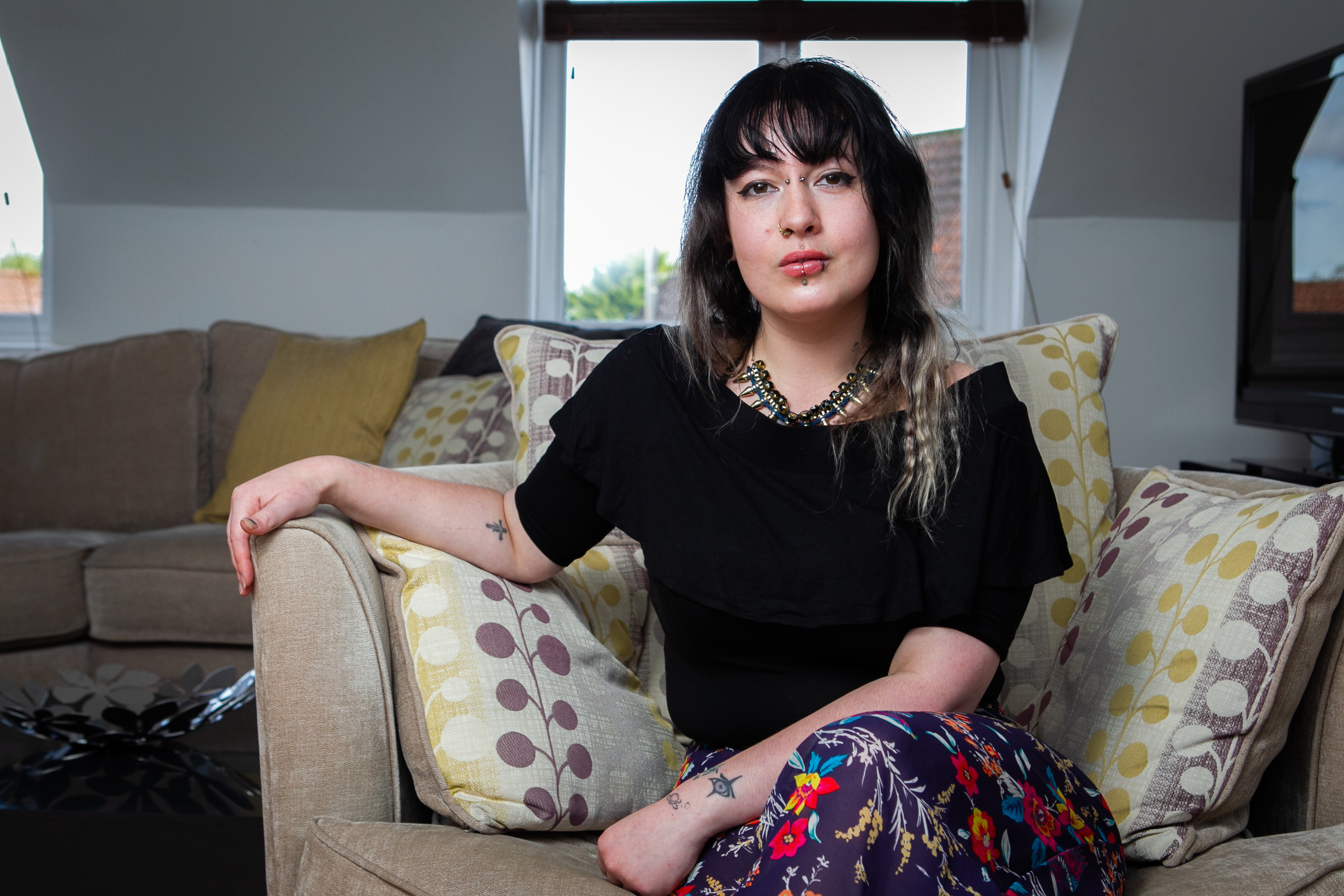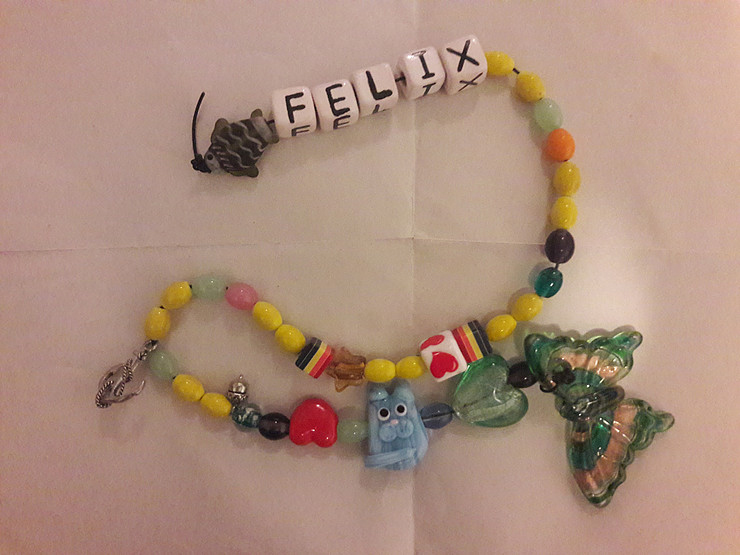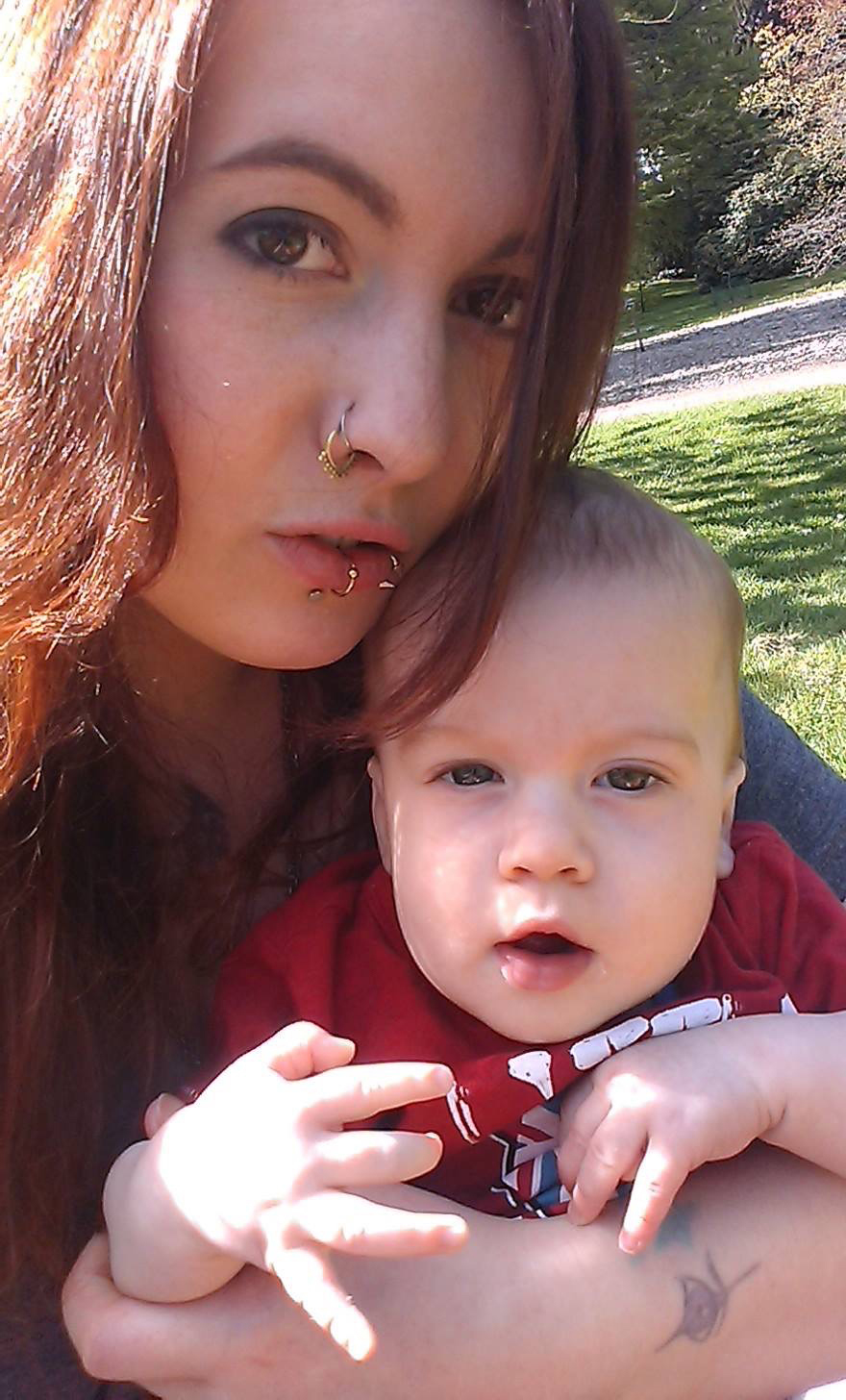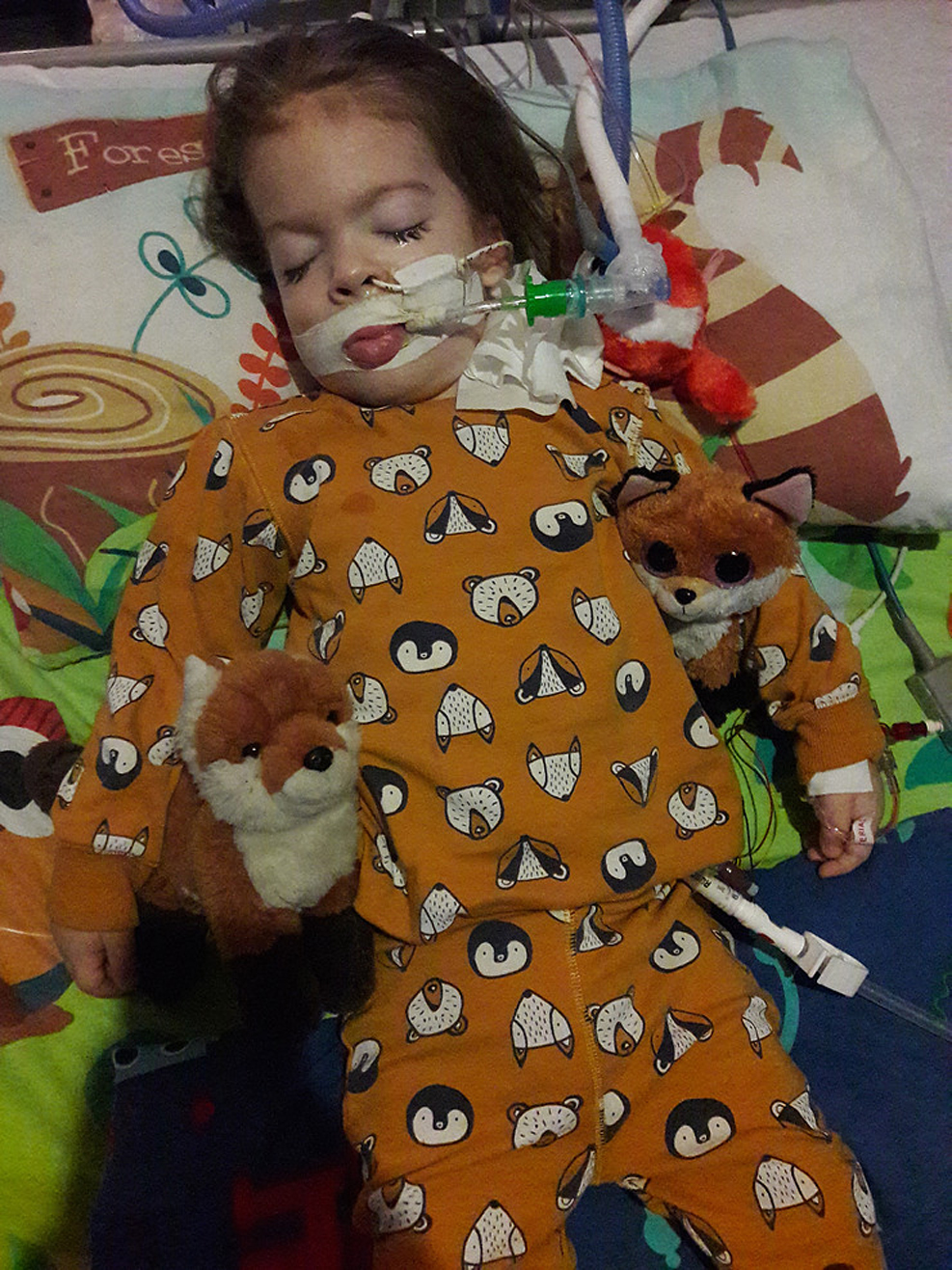
IT is every parent’s worst nightmare, their child on life support and doctors without hope.
For Lyall Wilde, 26, the nightmare became heartbreaking reality when her toddler son Felix became critically ill.
He was only two when he developed meningitis just before Christmas last year.
He became ill and had a seizure which doctors could only control by putting him into an induced coma.
On Christmas Day he woke, before lapsing back into a coma. He would die two weeks later, without regaining consciousness.
Now, his bereft mum has written a moving account of his final days and the maelstrom of emotions she went through.
One of us, it might have been me but I can’t be sure, said ‘Go make him a hero.’ …and then our favourite doctor picked Felix up and carried him carefully away
Speaking from her home in Dysart, Fife, she said: “I don’t want people to feel sorry for me or read a harrowing account of losing a child.
“It is about being honest and open about our feelings and the thing I love most is when someone tells me something I have written made them smile or laugh.
“I was just hoping to help people start talking about death and grief and all these issues.”
Lyall admits that writing and publishing her account has helped her cope.
“Writing draws out every emotion,” she said. “I will tear up at some parts, and be giggling to myself in others.
“I remember the feeling of burning rage at some times, and then remember those pockets of peace that spurred me on.
“There was so much love and positivity surrounding Felix.
“What happened to him was sad but his favourite word was ‘happy’ and that’s what I always remember about him.”
Lyall’s mum, Carolyn Cameron, a primary school teacher, said: “It’s heartbreaking to lose a wonderful grandson and then watch your daughter cope with it.
“Lyall is a wonderful mum and daughter.”
Felix’s organs were donated and helped save lives. His kidneys went to a man who had waited 10 years for a transplant. His heart valves have helped others.
SUNDAY: Our last day with Felix
The beginning of Sunday felt easy.
We were told we could bring any food we wanted into Felix’s little room, so we went out to grab all of the things we used to get and put together a great picnic of treats. Then we sat on his bed and had our last family picnic. We’d done them a lot with Felix.
Rory was too big to fit on the bed with Felix, so he sat on a chair at his side. I’d made a home sitting at the bottom of his bed, of course. The nurse saw us getting food out and poured more of his liquid food into his feeding tube so we’d all be eating together. They’re awesome like that.
And that’s really how we spent most of the day. Laughing and talking with him.
We’d decided that we were going to do his night-time routine. We were going to treat this as a lazy Sunday, then get him ready for bed.
That made our time 8pm. His usual bedtime.
When the time got close the nurses brought in some washbasins and we gave him a bath and got him changed into his pyjamas.
He looks a bit puffy in the picture, top right, but it’s because of the medication he was on. He isn’t crying, don’t worry. It was a gel they put on to stop his eyes feeling uncomfortable. That’s the last picture I have of him. I put my phone away after that and we got into bed with him. Me on the left, Rory on the right.
While at my house I’d rediscovered a book that my own mama had got him for Christmas. The book with no pictures. The point of it is that as the adult narrating the book, you’re under its control. Whatever it says you have to say, in all of the ways it says you say it.
We thought it was perfect.
We took turns reading each page, and ended up laughing at all of the silly stuff we were to say.
Once we finished the book we put it down, placed his hand between ours and held it on top of his chest. We just lay there silently for ages. Like we were pretending that the next part wasn’t about to happen. A nurse quietly opened the door to make sure we were OK before apologising and closing it again. We stopped her and said we’d stay there forever if we could.
Then everyone who’d been waiting patiently outside began to come in. The walls of the room were glass and to avoid crowding us a few doctors stood behind us to check the monitors through the glass. Our favourite doctor came in, gave us a sad smile, and sat on the left of the bed. Rory and I sat on the right holding Felix’s hand.
The monitors were turned away from us and the doctors outside of the room started watching them.
Then the ventilation was removed. In order for his organs to be removed, Felix had to have a cardiac death. And we were going to be there. I suddenly realised this and I can’t even begin to describe the emotions I felt.
I’d previously asked what could happen during Felix being removed from ventilation, whether his reactions would take over and he’d fight to breathe etc.
We were told this could happen. It didn’t. I looked up at the doctor, who had a stethoscope to Felix’s chest, and quietly said: “The lack of fight is saying a lot.” I can’t remember if he said anything, I think he said yes, but he nodded.
Felix’s left wrist had an arterial line in it, the same hand I was holding, and I realised that there was a small bit of blood still in the line that moved to his heartbeat. I watched it unblinkingly as it slowed down, and then our favourite doctor whispered that he was gone.
He quietly left the room to get quickly changed for theatre and Rory and I cried like hurt animals. We had no reason not to cry next to him any more, and we certainly didn’t hold back. When the doctor returned we knew we had a small window before endangering his organs and we didn’t want to waste any precious time. One of us said: “Go make him a hero.” I think it was me, but I can’t be sure. Neither of us were really there.
He picked him up and carried him carefully away.
MONDAY: Our first day without Felix

When I woke up that first morning without Felix there, I was able to imagine how his recipient was. Had their surgery went well? Were they going to recover OK? What were they thinking right now?
I feel strange when people say we are admirable to think of others during such a time.
It never felt like we were being altruistic, we had selfish reasons too.
It made us feel better.
It made us feel like we were finding a way for him to live on. It gave us an opportunity to make happiness come from it all. It made us feel like he’d won. Because of it, we had something nice to think about for a change.
We gained a lot.
There’s also a strange amount of guilt that I feel. When I got the letter telling me a little about the man who received his kidneys. I felt awful. Because the truth is that if I had my choice, none of those changes would be happening for him. He’d still be waiting, still trying to piece his life around dialysis.
With the harder things in life there will never be a happy option, just a least painful, and I don’t think that admitting that detracts from how amazing organ donation is. It’s just admitting to the humanity.
And, it’s okay.
After Felix had been taken to theatre, we went outside. When we went back to his room, we were met with one of the most saddeningly lovely sights ever.
The professional faces of the nurses (including our nurse that day who’d stayed late because she wanted to be there) and the other professionals who I can’t remember the titles of were all looking very human.
With puffy, red, eyes and sad faces. They didn’t have a reason not to be upset by his bed any more either.
The nurse Felix had that day came over to me with red cheeks and teary eyes and asked for a hug. I gave her the biggest one I could manage.
Then another nurse came over and showed us that they’d made Felix beads of courage.
Each bead stands for a treatment, or hospital stay. They even added one for parental courage which I had a good cry about.
The organs that Felix had removed were his heart and kidneys. So they gave him the heart transplant bead. As well as every bead for strength, courage, and honour that they had.
Find out more about organ donation at www.organdonationscotland.org

Enjoy the convenience of having The Sunday Post delivered as a digital ePaper straight to your smartphone, tablet or computer.
Subscribe for only £5.49 a month and enjoy all the benefits of the printed paper as a digital replica.
Subscribe
